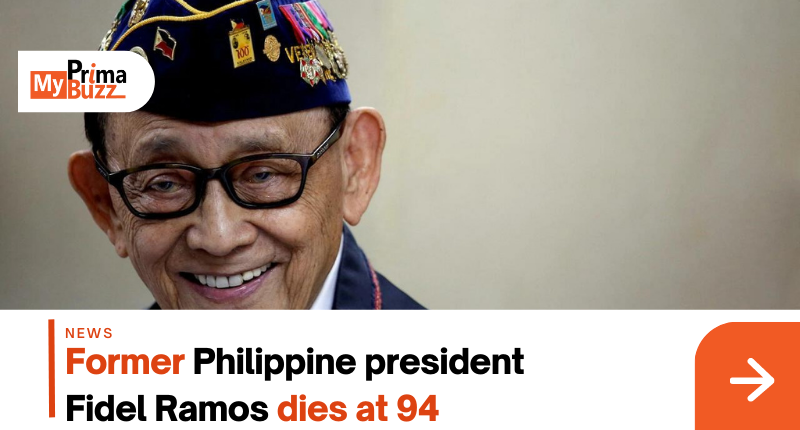Ramos led the military under the dictatorship of Ferdinand E. Marcos, his second cousin.
“You must understand that even with that close relationship and association during the war … why did I go against this guy?” he said. “It’s because of what is in the constitution. … You obey the orders of your superior, your commanding officer, if they are legal orders. But when he started to stray during the martial law years … that went against my values.”
In 2016, Ramos threw his support behind populist candidate Rodrigo Duterte, the tough-talking strongman who would later be known for a brutal anti-drug campaign that left thousands of dead.
But within the same year, the former president said Duterte’s government was “a huge disappointment and let-down,” criticizing Duterte’s constant cursing and hostility toward the United States in foreign policy in a column for the broadsheet Manila Bulletin. He resigned as Duterte’s appointed special envoy to China that same year.
Philippines President Fidel Ramos inspects guards of honor upon his arrival at Moscow's Vnukovo-II airport in Moscow in September 1997

Duterte also allowed the controversial state burial of Marcos in the Cemetery of Heroes. Ramos opposed the decision, which sparked thousands to take to the streets in protest. When Ramos was president, he allowed the family to bury the late dictator in their home region of Ilocos when they returned from exile in the United States. Some Marcos critics believe Ramos should not have allowed them to return.
In this year’s national elections, the party that Ramos founded endorsed the dictator’s son, Ferdinand Marcos Jr., who won in a landslide. However, officials from Ramos’s cabinet publicly endorsed opposition candidate Maria Leonor Robredo. Ramos himself, who had been out of the public eye because of the pandemic, did not make a public endorsement.
Despite the criticism, Ramos has generally aged as a respected figure in Philippine politics. His contemporary Juan Ponce Enrile, a former Marcos defense minister who defected alongside him, faced corruption scandals and has since walked back criticism of the dictator. He has since returned to the fold of power and serves as legal counsel to Marcos Jr. at 98. Ramos’s successor to the presidency, Joseph Estrada, was later ousted in a second People Power revolution amid corruption issues.
In a forum covering Ramos’s legacy last year, political columnist and veteran journalist John Nery said the former president “passed the test of time.”
“It should be clear now that, in the end, and to the end, he retained an abiding loyalty to the primacy of the constitution. … whatever the constitution was,” Nery said. He added that Ramos’s loyalty to the law explained his defection.
“There is no gainsaying his constitutional sense, and his fidelity to it. When I think of the possibilities open to him, during the era of the coup attempts, to choose the other side — which would have completely changed the country’s history — I appreciate all the more that he knew his limits.”

